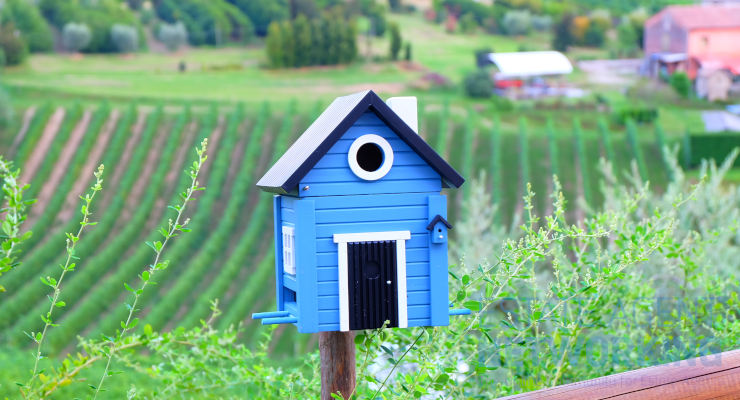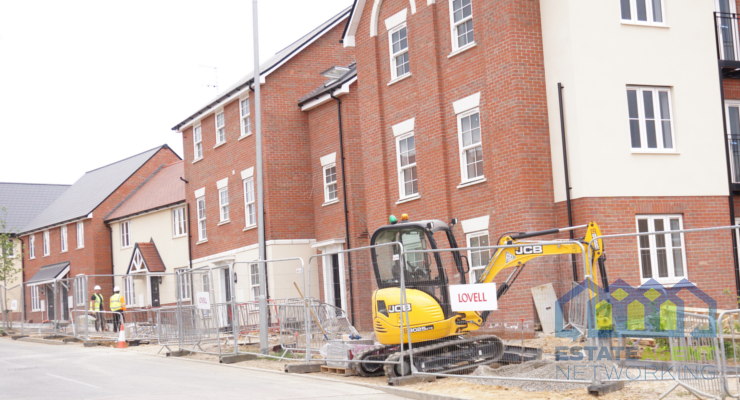Closing the deal ‘off-grid’
Mark Cleaver, National Sales Manager at Calor, explains the fuel options available for rural homes, to help estate agents advise potential buyers when selling off-grid properties.
In the UK, there are over 3.9 million1 homes situated in off-grid areas with no access to mains gas, so it’s likely that rural estate agents will come across properties that rely on alternative fuel options – such as oil, electricity, solid fuel and liquefied petroleum gas (LPG) – for heating and hot water.
For prospective buyers, this can be confusing. If they have previously used mains gas, they may not understand how these alternative systems work, or how much they cost to run or maintain. They may also be worried about fuel security, as heating oil is commonly targeted by thieves.
So, it’s important that estate agents have sound knowledge about the different types of off-grid fuel systems available, the pros and cons of each, and be able to effectively advise potential buyers. Here’s a run-down of the different options…
LPG
LPG is the closest alternative to being on mains gas, which is ideal for prospective buyers who currently reside in the city. LPG offers convenience and versatility, and can used for heating and hot water, cookers, gas fires and even tumble dryers!
LPG offers the smoothest transition to rural life. Alongside being versatile, it’s the cleanest and greenest off-grid fossil fuel and is also really efficient, with modern condensing LPG boilers achieving efficiencies of 90% or more.
What’s more, there are a variety of tank storage options to choose from; above-ground, underground and cylinder packs. Underground tanks are a desirable option for those who wish to preserve their garden aesthetics. For those smaller properties with lower energy requirements, gas cylinder packs are an ideal solution as they are great space-savers.
Auto-ordering is available on tanks, and suppliers can monitor gas levels and schedule a top-up when needed. You can assure your buyers that they do not need to be in the house to greet the delivery driver either.
Also, LPG tanks and boilers are cost effective to install, so your buyers can rest-assured there aren’t significant additional costs if they want to switch when purchasing a property.
BioLPG
For eco-conscious buyers who are concerned with the impact to the environment, BioLPG is an ideal rural fuel. BioLPG emits around 38 per less CO2 per kWh than heating oil and 15 per cent less than standard LPG2.
It is made from a mix of renewable and sustainably sourced materials yet has the same chemical composition as LPG, therefore it works with standard LPG systems, boilers and appliances, so there would be no need for any special equipment.
Oil
Oil is used in ‘wet’ heating systems that involve an oil-fired boiler, heating water to offer central heating via radiators, and hot water through taps. Oil is efficient and modern condensing oil boilers now achieve efficiencies of 90 per cent and more. The oil is delivered by road and stored in an external tank.
Some find a large oil tank to be detrimental to the overall aesthetics of a house and a turn-off for many potential buyers. The environmental impact of oil can also be a concern as the owner of an oil tank is responsible for any leakages, whether the result of poor installation, insufficient maintenance or vandalism.
Should an oil spillage occur, the local authority could declare the ground contaminated under the Environmental Protection Act, with the possibility of significant fines. Oil tanks can also be easily siphoned, which poses a security risk. The price of oil can fluctuate too, meaning there are no guarantees how much it will cost each time the tank is refilled.
Solid Fuel
A solid fuel option such as a coal or wood-burning stove can be aesthetically desirable, but it does come with a few downsides. It can be impractical to store and transport the wood or coal, and the soot caused by burning the fuel can be messy. The home may also be heated unevenly, so some rooms may need additional heat from an electric heater. An immersion tank will also be required for hot water.
Electricity
Electric boilers are available for homes relying on electricity as a fuel for heating and hot water. The alternative is to use electric storage heaters, which are more cost effective than electric boilers, and they are much cheaper to install and maintain. One of the cons is that you do not get the same level of control over your heating in comparison to using a central heating system. On average it’s also 2-3 times more expensive to heat a home using electricity than oil, LPG and solid fuel.
Air Source Heat Pumps
ASHPs are often a popular renewable choice for eco-conscious buyers, as they can be retrofitted in older homes. They function by utilising the heat from the air via a cylinder system which is then pumped into the property to provide heating and hot water.
Properties with underfloor heating are perfect for ASHPs rather than radiator-based systems because of the lower water energy temperatures required.
ASHPs provide environmentally friendly technology, yet the initial outlay can be costly to purchase and require specialist installation, which isn’t always as efficient when retro-fitted. Also, they perform optimally in warmer climates and need to be controlled accurately to deliver the efficiencies required.
Ground Source Heat Pumps
GSHPs utilise the natural energy from the ground, in comparison to its air counterpart. Ground source offers consistent energy for a home all year as the temperature underground has less fluctuation than the air.
A GSHP extracts its energy using a ground collector through the heat pump and into a thermal-store in your home. For optimum performance, installing larger radiators and under-floor heating is beneficial.
The ground collectors require a large space underground, twice the total amount of your floor space at a depth of one metre. You do have the option of an alternative method if space is at a premium, which involves boring a hole, however this normally requires planning permission. The systems are very costly to install and set-up and will involve excavating your garden4.
Also, a secondary energy source may still be required as a back-up during extreme cold weather and providing hot water will also affect the efficiency of the pump so a separate electric heater may be required to help meet all of your heating and hot water needs.
Solar PV
There are two main types of active solar panel systems, Photovoltaic (PV) solar panels and solar water heating. Solar PV converts the energy from sunlight using semi-conducting materials to energise and produce electricity for your home. The buyer should take into consideration the size of the roof to the type of solar panels required, as there are four varying types with different efficiencies.
Currently, solar panels cannot store energy, so a backup energy source is required for 24-hour electricity. Solar batteries are an option, but they are an expensive add-on. However, research suggests that properties with a solar panel system reduces the home’s value.
To learn more about LPG and new BioLPG, visit calor.co.uk or call 0800 121 4531.









